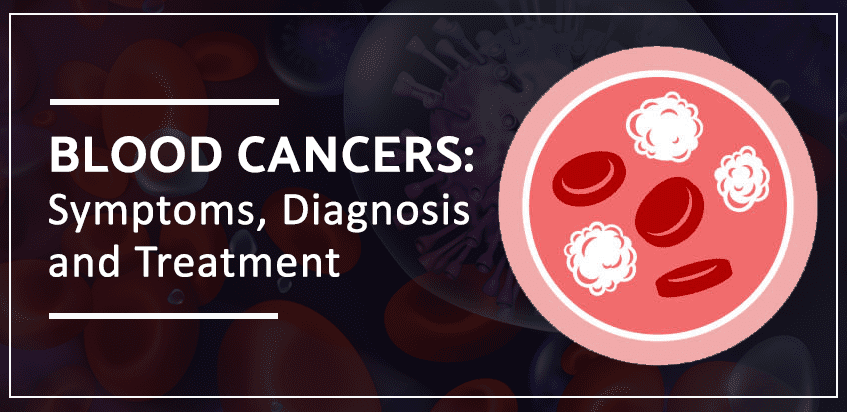Do you know your blood accounts for around 8 percent of your normal body weight and is accountable for how your body functions? Blood circulates throughout your vascular system and supplies your entire organs with nutrients, hormones, antibodies, and oxygen. Blood comprises an almost equal blend of plasma (the liquid that transfers nutrients, waste, and waste, among other things) and blood cells, i.e., the red blood cells, white blood cells, and platelets. At the point when cancer grows in the blood, it’s typically the consequence of an unusual and excessive reproduction of white blood cells. Blood Cancers (including leukemia, lymphoma, and myeloma) are more normal in men than in ladies. Childhood leukemia accounts for about 25% of all diseases in youngsters. Some blood cancers may show no symptoms and slowly and steadily progress over the years, while others have signs of blood cancer in adults or adolescent such as severe weight loss, fatigue, lymph node swelling, or night sweats. Additionally, therapies for blood cancer change from dynamic observation without cancer growth-guided treatment to standard disease medicines, including immunotherapies, chemotherapies, and designated specialists. “With more than 100 distinct sorts of blood cancer growths currently remembered, have an exact finding preceding settling on a treatment.
First, let us Know What is Blood?
Blood comprises of four major parts:
- Plasma:- The liquid part of blood transfers waste products, nutrients, proteins, and other molecules responsible for affecting several parts of the body, including fluid balance and regulating body temperature.
- Red Blood Cells:- These blood cells are responsible for transferring oxygen to tissues and the lungs.
- White Blood Cells:- This cell is responsible for safeguarding against infections.
- Platelets:-These cells form blood clots and avoid blood loss.
There are three primary types of Blood Cancers:
- Leukemia:- It is the cancer of white blood cells or cells that develop as white blood cells. Leukemia averts white blood cells from combatting infections in your body, and it can either be acute or chronic. It is mostly found in children under the age of 15. It affects lymphocytes, also known as lymphocytic leukemia, or other immune cells, such as myeloid leukemia.
- Lymphoma:-Lymphoma is cancer that advances to the lymphatic system, which is a significant part of the immune system, predominantly lymph nodes (a minute bean-shaped structure of the lymphatic system that cleans out the harmful substances). Lymphoma cancer affects a sort of white blood cell referred to as lymphocytes. This cancer is a very common form of blood cancer in adults that accounts for over half of all identified blood cancer cases.
- Myeloma:- It is the cancer of plasma cells that are lymphocytes that create antibodies to safeguard against infections. Unfortunately, Myeloma hinders the immune system of the body, leaving it prone to infections.
Who is More Prone to Blood Cancer?
The threat factors for blood cancer growth are not completely known and understood. However, it is accepted that blood cancers create from a blend of hereditary and natural components. Smoking, radiation openness, and openness to synthetic compounds like benzene (a generally utilized industrial chemical) have all been connected to the expanded risk of certain sorts of blood cancers. Epstein-Barr infection, HIV, and human T-cell lymphoma/leukemia infection contaminations are additionally threat factors for enhancing lymphomas and leukemias.
Symptoms of Blood Cancer
There are several symptoms of blood cancer, however it may differ by disease but normally include the listed below:
- Fever
- Weakness
- Chills
- Fatigue
- Weight Loss
The puffiness of lymph nodes, liver and spleen are also very common and anemia can occur in some blood cancers and are primary symptoms of blood cancer in female and male too.
How Blood Cancer is Diagnosed?
- Leukemia:-Your doctor may ask for a complete blood count (CBC) test, this test can detect irregular levels of white blood cells comparative to red blood cells and platelets for blood cancer diagnosis.
- Lymphoma:-Your doctor will require to perform a biopsy, that eradicates a small portion of tissue to be detected under a microscope. However, in some cases, the physician may also ask for an X-ray, PET or CT scan to spot the puffy lymph nodes.
- Myeloma:-In order to diagnose Myeloma, your doctor may order a CBC, or other urine or blood tests to examine chemicals or proteins produced as a function of myeloma enhancement. In some cases, bone marrow biopsy, X-ray, MRI, PET, and CT scans can be utilized to confirm the presence and extent of the spread of myeloma.
Treatments for Blood Cancer
Treatments will rely upon the kind of blood cancer growth you have, your age, how quick the disease is advancing, and regardless of whether the cancer has spread to different parts of your body. Since therapies for blood cancer have immensely worked on in the course of the most recent quite a few years, many kinds of blood cancers are currently exceptionally treatable. Some common treatments incorporate the following:
- Chemotherapy:-Anticancer drugs are introduced to the body (via injection into the vein or sometimes by taking a pill) to kill and halt the production of cancer cells.
- Targeted Therapies:-This type of disease treatment utilizes drugs that explicitly kill malignant platelets, without hurting ordinary cells. Designated treatments are most usually used to treat leukemia.
- Radiation Therapy:-This type of disease treatment utilizes drugs that explicitly kill malignant platelets, without hurting ordinary cells. Designated treatments are most usually used to treat leukemia.
- Stem Cell Transplantation:-Sound stem cells can be injected into your body to assist with continuing healthy blood creation following treatment to abolish blood cells.
- Cancer Surgery:-This treatment includes eradicating the affected lymph nodes to treat some lymphomas.

